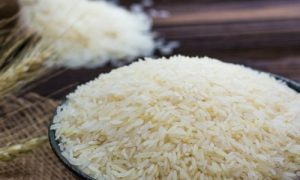The Philippines: Digital Transformation Enhances Rice Seed System

The Philippine Rice Research Institute and BPI are scaling up the Rice Seed Information System (RSIS) to digitise the rice seed sector. RSIS streamlines certification, distribution, and monitoring through a cloud-based platform. Backed by South Korea, the project has trained over 1,300 stakeholders so far. Future upgrades aim to integrate AI and IoT, enhancing resilience and national food security.
The Philippine Rice Research Institute (PhilRice), in collaboration with the Bureau of Plant Industry (BPI), is driving the digital transformation of the country’s rice seed system through the nationwide rollout of the Rice Seed Information System (RSIS).
RSIS is a comprehensive digital platform designed to centralise and streamline the monitoring, certification and distribution of quality rice seeds. The system connects registered seed growers, producers, certification agencies and storage facilities through a real-time, cloud-based network.
This network enhances data accuracy, inventory visibility and operational coordination across the entire rice seed value chain, improving efficiency, transparency and decision-making processes.
Designed with both mobile and web applications, RSIS enables users to manage every stage, from production planning and seed inspection to postharvest monitoring, warehousing and seed distribution.
According to early users, the system is intuitive and efficient, though PhilRice acknowledges that some stakeholders require additional support in adopting digital tools. To bridge this gap, the RSIS team continues to conduct orientations and hands-on training sessions across regions, offering modules on data entry, system troubleshooting and digital literacy fundamentals.
“This is not just about digital records. RSIS is a game-changer that promotes faster and more transparent decision-making in seed production and distribution,” said Fidela Bongat, Head of the PhilRice Business Development Division and RSIS Project Lead. “We are committed to supporting our stakeholders as we scale up this system.”
The digital transformation effort was accelerated by a series of capacity-building workshops, including one held in Quezon City titled Advancing Information Systems for Rice Seed and Buffer Stock Management.
Organised by Orient Integrated Development Consultants, Inc. (OIDCI) and the Global Agriculture Policy Institute (GAPI), the event focused on the integration of digital infrastructure and advanced analytics into national seed and buffer stock operations.
The RSIS initiative, which began pilot testing in 2022, is supported under an Official Development Assistance (ODA) grant from South Korea’s Ministry of Agriculture, Food and Rural Affairs (MAFRA). The project is funded by the Korea Rural Community Corporation (KRC) and implemented through GAPI.
From May 2024 to May 2025, a total of 1,309 individuals were trained on the RSIS platform, including 1,024 seed growers, 235 seed inspectors and 50 representatives from the Department of Agriculture (DA), state universities and PhilRice. The platform has engaged 75 seed grower cooperatives and associations across 16 regions.
However, this figure currently represents only about 20% of the project’s target coverage, out of an estimated 4,500 accredited seed growers and over 1,000 deputised inspectors nationwide.
PhilRice Information Technology Officer Arturo Arocena Jr. highlighted future plans to further enhance the system. “We are looking forward to AI revolutionising RSIS. One of the goals is to connect all seed warehouses for smarter, faster operations,” he said.
These AI-powered insights, coupled with IoT-enabled tracking and automation, are expected to make RSIS one of Southeast Asia’s most advanced agricultural data platforms by 2027, with predictive analytics and digital dashboards supporting planning and response strategies.
The initiative also aligns with the Department of Agriculture’s broader strategy to build a digitally enabled, resilient and responsive rice seed system. DA Undersecretary for Rice Industry Development Christopher Morales underscored the importance of integrating technology with yield-focused interventions.
“Achieving the highest palay yield is not enough. Our seed systems must be resilient, responsive and adaptive,” he said.
To ensure the long-term success of RSIS, PhilRice and BPI have prepared a joint proposal to institutionalise the system through sustained infrastructure support, capacity building and policy development.
The digital platform is expected to strengthen the country’s rice seed supply chain, making certified seeds more accessible to farmers and enhancing coordination among seed system stakeholders, ultimately contributing to improved productivity and national food security.
To Read more about Rice News continue reading Agriinsite.com
Source : Ukr Agro Consult
















